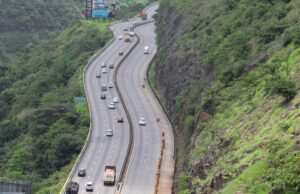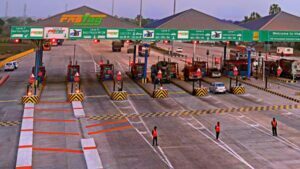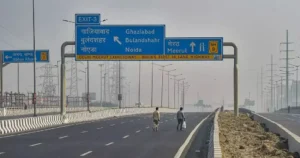Introduction
The Faridabad Jewar Expressway is an eagerly awaited infrastructure project set to transform connectivity between Faridabad (Ballabgarh) and the upcoming Noida International Airport (Jewar Airport). Scheduled for completion by June 2025, this six-lane greenfield expressway will cut down the travel distance from 90 km to 31 km and reduce travel time from two hours to a mere 15 minutes by car. Part of the Bharatmala Pariyojna initiative, this project is expected to drive real estate and economic growth in the National Capital Region (NCR) alongside revolutionizing transportation.
Key Project Highlights
- Length: 31.425 km
- Estimated Cost: Rs. 2,414.67 crore
- Number of Lanes: Initially six, expandable to eight
- Construction Start Date: June 22, 2023
- Expected Completion: June 20, 2025
- Managing Authority: National Highways Authority of India (NHAI)
- Time Savings: Travel time reduced to 15 minutes between Ballabgarh and Jewar Airport
- Highways Linked: Delhi-Mumbai Expressway, Yamuna Expressway, KGP (Eastern Peripheral Expressway), KMP (Western Peripheral Expressway)
This expressway is integral to improving infrastructure in the NCR, making travel to Jewar International Airport—slated to open in December 2024—faster and more efficient.
Route and Villages Covered
The expressway will originate at the Link Road Junction on the Delhi-Mumbai Expressway near Sector 65 in Ballabgarh, Faridabad, covering 22 km in Haryana and 9 km in Uttar Pradesh before terminating in Dayanatpur, near Jewar. It will pass through several key villages in both states.
Villages in Haryana:
- Jhuppa, Fallaida Khadar, Bahpur, Kalan, Chhaysa, Mohiyapur, Mohana, Hirapur, Mehmadpur, Narhawali, Panhera Khurd, Fafunda.
Villages in Uttar Pradesh:
- Dayanatpur, Vallabhnagar, Karauli Bangar, Farida Bangar, Amarpur, Jhuppa (Gautam Buddha Nagar District).
Additionally, the expressway will feature 10 km of service roads on both sides for local traffic.
Connectivity and Interchanges
The Faridabad Jewar Expressway will provide seamless interconnections with major highways:
- Delhi-Mumbai Expressway: Ensures connectivity to Mumbai.
- Yamuna Expressway: Quick access to Agra and other parts of Uttar Pradesh.
- KGP (Eastern Peripheral Expressway): Links cities like Kundli, Ghaziabad, and Palwal.
- KMP (Western Peripheral Expressway): Connects Kundli, Manesar, and Palwal.
An interchange at Mohana village will enable smooth integration with the KGP Expressway, further enhancing regional connectivity.
Construction and Timelines
Construction began on June 22, 2023, and the project is expected to be completed by June 20, 2025, with a total investment of Rs. 2,414.67 crore. Jewar International Airport is expected to be operational by December 2024, just before the expressway’s completion.
Economic and Real Estate Impact
The expressway is projected to have a substantial effect on the real estate markets along its route. Areas in and around Faridabad, Ballabgarh, and Jewar are anticipated to experience a 30-40% increase in property values due to the improved connectivity. Both residential and commercial real estate demand is expected to rise, driven by:
- Increased Housing Demand: More affordable housing projects in accessible areas of Haryana and Uttar Pradesh.
- Commercial Growth: New commercial hubs, offices, and retail centers along the expressway.
- Industrial Expansion: Reduced travel time to the airport makes the area more appealing for industrial investments and logistics.
Strategic Importance for the NCR
The expressway is part of a broader plan to enhance the NCR’s infrastructure, with Jewar Airport set to complement the Indira Gandhi International Airport in Delhi. It is also vital for tourism, as it provides easier access to Agra and Jaipur. This reduces the traffic burden on Delhi’s airport and roads, helping to decentralize travel in the region.
Future Potential
Once operational, the Faridabad Jewar Expressway will serve as a key driver of industrial, commercial, and residential developments in both Haryana and Uttar Pradesh. Its six lanes are designed to expand to eight, accommodating future traffic demands. This project sets a precedent for future infrastructure developments aimed at connecting major urban centers to newly established airports.
Final Thoughts
The Faridabad Jewar Expressway is a transformative project that will drastically reduce travel times and unlock the economic potential of the surrounding areas. Its integration with Jewar International Airport and other key highways marks it as a significant piece of the NCR’s infrastructural future, promising long-term benefits for both transportation and regional development.







